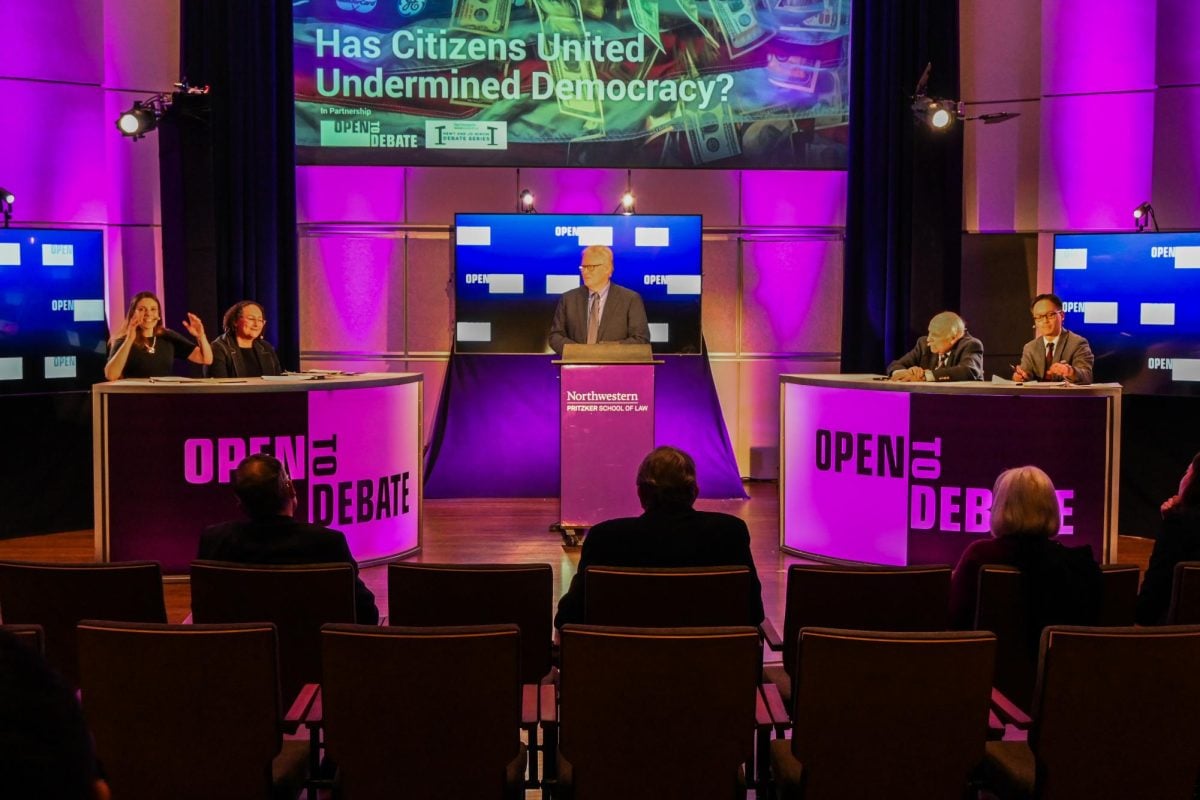Northwestern’s Pritzker School of Law hosted a debate to discuss whether the Supreme Court case Citizens United v. Federal Election Commission undermined democracy Wednesday. The event was a part of the nonpartisan debate series Open to Debate and the Newton and Jo Minow Debate Series.
The 2010 Citizens United case determined that corporations can spend unlimited money on political campaigns under the First Amendment.
On the side against Citizens United, Vanderbilt law Prof. Francesca Procaccini and Stetson law Prof. Ciara Torres-Spelliscy argued that the decision gives corporations undue influence in elections, raising the voices of the wealthy donors over those of the general public.
“Citizens United doesn’t just undermine by unleashing vast sums of money into our politics, it undermines democracy,” Procaccini said. “And as well shown, democracy is being crushed under that weight right now.”
On the side for Citizens United was Floyd Abrams, senior counsel for Cahill Gordon & Reindel who represented Citizens United in the original Supreme Court case, and Eric Wang, partner at The Gober Group.
Abrams and Wang reflected the context of the case. Citizens United challenged campaign finance rules after the FEC stopped it from airing an advertisement tarnishing presidential candidate Hillary Clinton. Abrams and Wang advocated that corporations, like Citizens United, had their speech stifled by those regulations.
“The speech that people were afraid of, the ‘big money corporate speech,’ did not occur,” Abrams said. “It was a myth.”
Abrams said the price tag would have been the deprivation of speech had the court ruled against Citizens United. But Abrams also acknowledged Procaccini’s view that the decision undermines the integrity of U.S. elections, making for friendly competition.
Wang interrupted Procaccini to emphasize that donations are just one aspect of how an election is decided.
“The overriding thing that decides Washington is candidate quality, and that’s something you can’t buy with money,” Wang said.
John Donvan, moderator in chief of Open to Debate, allowed the audience to ask questions to debaters and determine the result with the strength of their applause. The side that agreed Citizens United undermined democracy won the audience vote, with louder applause overall.
Torres-Spelliscy said large donations to election campaigns can intimidate voters, allowing them to believe their vote is less important. She expressed worry that the people’s lack of confidence in the electoral system could affect democracy.
“They think that their vote doesn’t count. They think that it’s a rigged game, and the more that there’s this huge amount of spending, the more that they feel their vote is devalued,” Torres-Spelliscy said. “And I think that it’s really dangerous because I think as a democracy, it’s really fragile.”
Email: e[email protected]
X: @betsy_lecy
Related Stories:
— Caleb Snead and Ty’Shea Woods win ASG presidential election with heightened turnout






